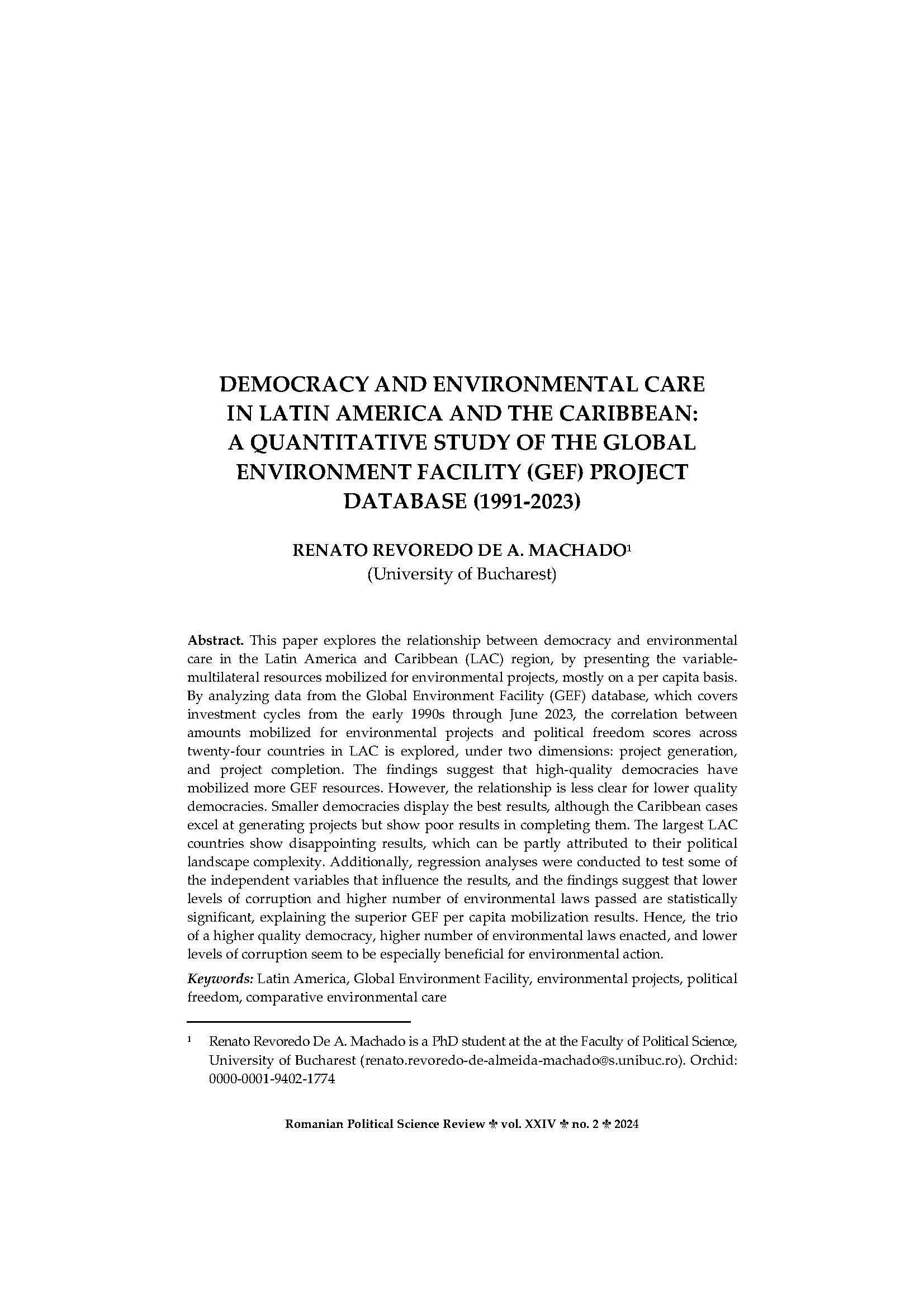DEMOCRACY AND ENVIRONMENTAL CARE IN LATIN AMERICA AND THE CARIBBEAN: A QUANTITATIVE STUDY OF THE GLOBAL ENVIRONMENT FACILITY (GEF) PROJECT DATABASE (1991-2023)
DOI:
https://doi.org/10.62229/sprps24-2/1Keywords:
Latin America, Global Environment Facility, environmental projects, political freedom, comparative environmental careAbstract
This paper explores the relationship between democracy and environmental care in the Latin America and Caribbean (LAC) region, by presenting the variablemultilateral resources mobilized for environmental projects, mostly on a per capita basis. By analyzing data from the Global Environment Facility (GEF) database, which covers investment cycles from the early 1990s through June 2023, the correlation between amounts mobilized for environmental projects and political freedom scores across twenty-four countries in LAC is explored, under two dimensions: project generation, and project completion. The findings suggest that high-quality democracies have mobilized more GEF resources. However, the relationship is less clear for lower quality democracies. Smaller democracies display the best results, although the Caribbean cases excel at generating projects but show poor results in completing them. The largest LAC countries show disappointing results, which can be partly attributed to their political landscape complexity. Additionally, regression analyses were conducted to test some of the independent variables that influence the results, and the findings suggest that lower levels of corruption and higher number of environmental laws passed are statistically significant, explaining the superior GEF per capita mobilization results. Hence, the trio of a higher quality democracy, higher number of environmental laws enacted, and lower levels of corruption seem to be especially beneficial for environmental action.





